Exhaust gaskets prevent exhaust leaks in your car. Therefore, ensuring your gaskets always function properly is a good practice. If you would like to know if you can reuse your exhaust gasket, we researched this question, and this is what we found out.
Reusing your exhaust gaskets is not a good idea. Exhaust gaskets are prone to swelling due to the absorption of fluids. Reusing old gaskets can lead to leaking, also causing exhaust noise.
Having an exhaust gasket leak can cause noise pollution, and it can also affect the drivability of your car. Keep reading to learn how to use and replace your exhaust gasket safely. We would also talk about the reasons for blown gaskets and how to identify them.
Can You Reuse The Exhaust Gasket?
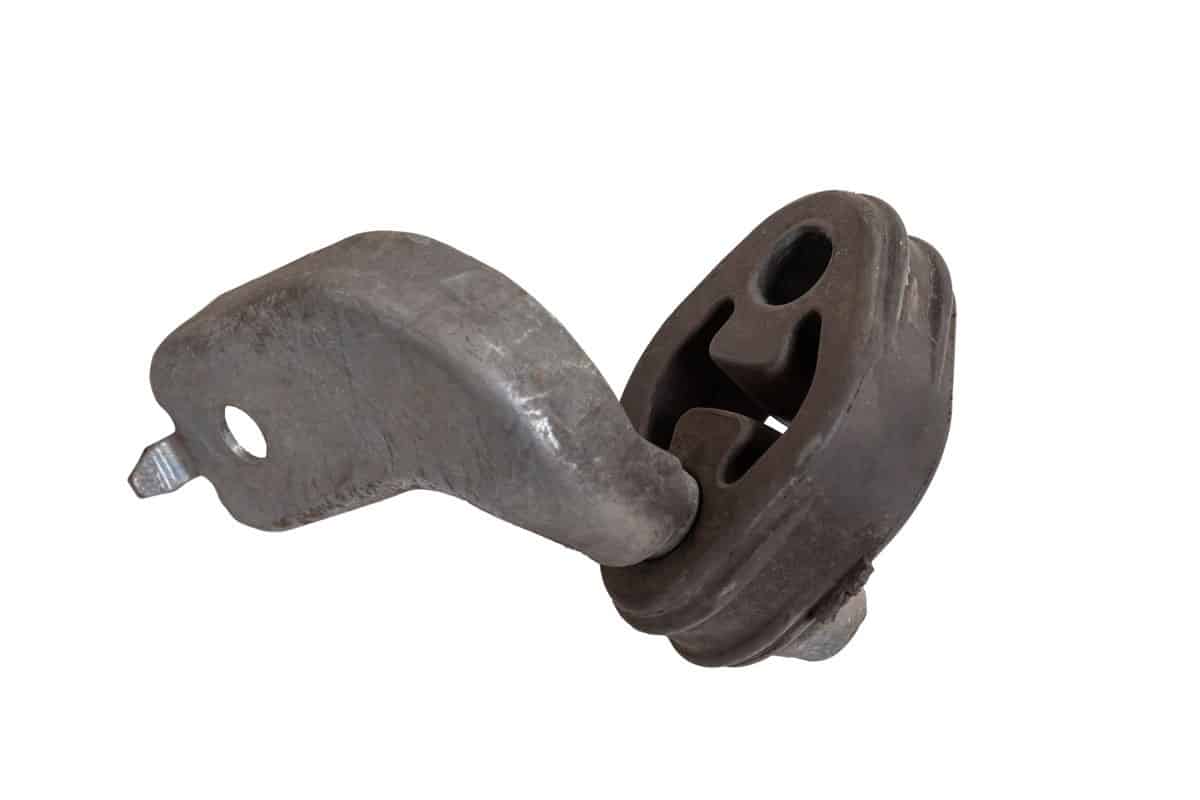
Whether you're trying to seal a leak in an exhaust system or trying to reclaim lost torque, reusing old gaskets is not a good idea because of their fluid saturation, comprehension set, and heat exposure.
An already-used exhaust gasket does not perform the same way as new ones and can swell, crack, and leak. However, if you must reuse your exhaust gaskets, you must coat them properly using a copper gasket material.
Note that the exhaust gasket must be coated on both sides; otherwise, it won't be effective.
Do Exhaust Gaskets Require Sealant?
Generally, exhaust manifold gaskets do not require sealant. However, you can't always be sure. If your engine is emitting exhaust noise, you could have a leak in your gasket.
You can get a gasket sealant to help you seal up your leak. These are usually glue-like substances that are used to help your gasket stick to the seal. A sealant can help you seal a tiny leak, prevent water from leaking into your engine, and keep out gasses.
Using a sealant will help your gasket last longer. However, you need to be careful about how much sealant you use. Applying too much sealant might lead to clogging. This is why applying the gasket sealant in a thin ribbon around the edges is important.
In addition, a sealant can help your gasket hold in place during installation. It can also help prevent it from tearing. You can find sealant in a variety of forms. You can use liquid sealants, gel sealants, or flange sealants.
Check out the Permatex gasket sealant on Amazon.
How Long Do Exhaust Gaskets Last?
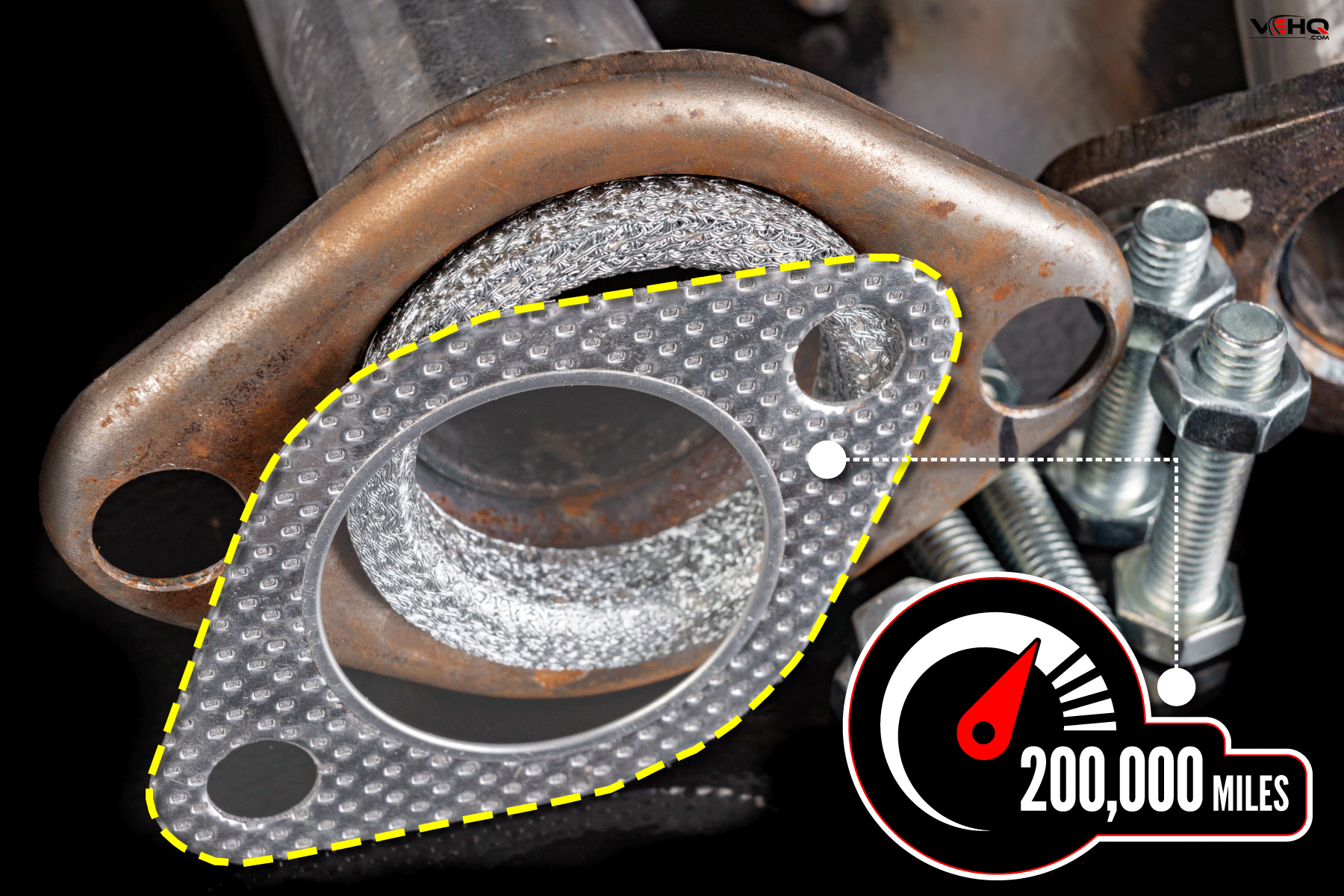
The exhaust gaskets' lifespan depends on several factors, including the materials used, the operating environment, and the car owner's driving habits. However, the general rule of thumb is that gaskets typically last 200,000 miles.
Exhaust gaskets come in different variations. While some exhaust gaskets will last longer, others might not.
Can You Use Two Exhaust Gaskets?
You should not use two exhaust gaskets in a system. There would be an open surface that you will need to seal if you use two exhaust gaskets.
Exhaust gaskets are typically made combined layers of metal and graphite held together by rubber binders to maintain the tension between the cylinder head and header flange.
So, if two exhaust gaskets are in an engine, the gaskets could leak or even fail, which would be dangerous.
What Is The Best Material For Exhaust Gaskets?
Choosing the best material for exhaust gaskets is important in ensuring that your car's engine functions properly. While there are different gasket materials, each with its own unique properties.
Some of the most common include silicone, cork, paper, and metals. Exhaust manifold gaskets can also be made of ceramic composites, high-temperature fiber material, embossed steel, or a combination of materials. Each has its own advantages and disadvantages.
The material of the exhaust manifold gasket will affect how much it expands and contracts. A factor to consider when choosing a material for exhaust gaskets is whether or not it can withstand high temperatures.
If you use your car on rough roads, a material like natural rubber may be your best bet. Natural rubber works well with rough, and it also adds shock resistance and vibration resistance.
Copper: The Standard
Copper remains the best material for exhaust gaskets. This is because copper is a relatively good conductor that can withstand high heat. Copper exhaust gaskets are the standard by which other exhaust gaskets are measured.
Copper exhaust gasket can also stabilize cylinder head and engine block temperatures, which is not really effective in other materials. A downside is that copper gaskets can be more expensive than other materials. This also includes the cost of installation.
Note that you don't want a gasket that's too thin. It could result in a bad seal or a blow hole in your engine. So they need to be slightly flexible to work properly and have the right thickness as well.
What Causes a Blown Exhaust Gasket?
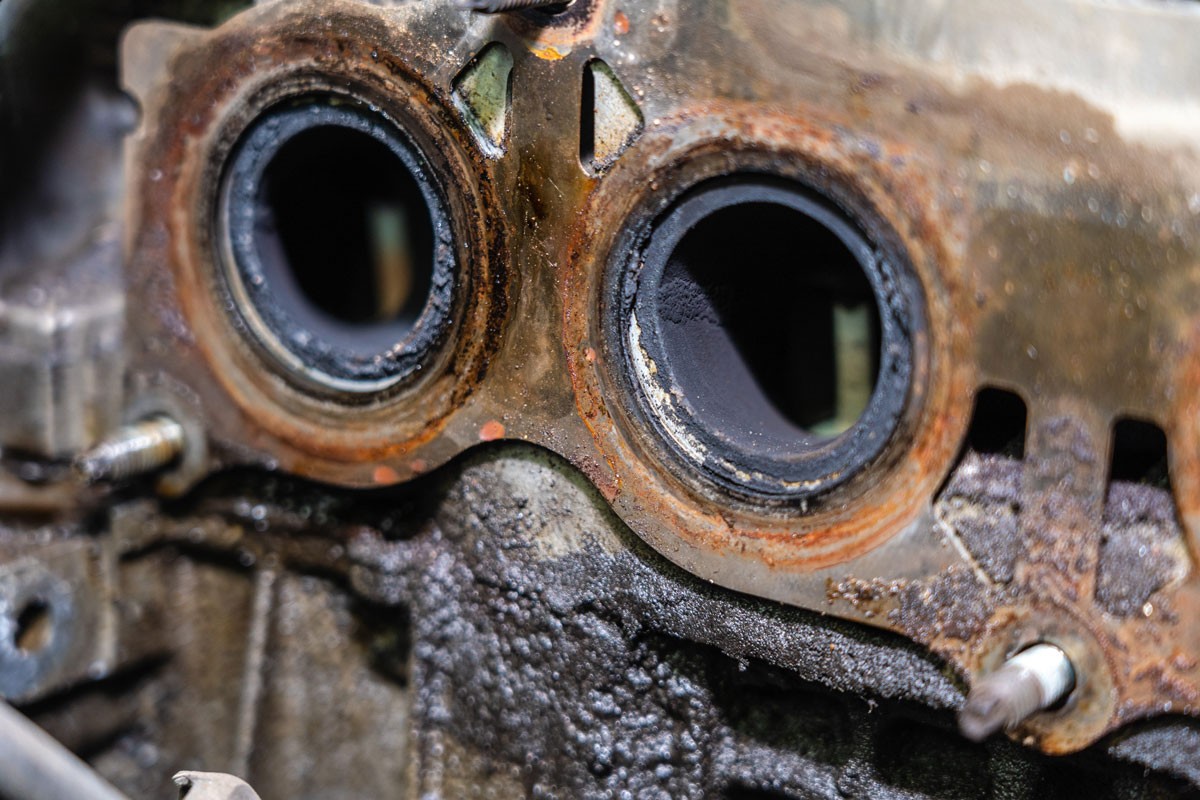
A blown exhaust gasket is bad for your engine. It is an expensive repair and can result in other major damage to your engine. These are some of the causes of an exhaust gasket.
Overheating
Overheating can cause the engine's metal components to expand and warp, leading to cracks. This can also affect the gasket. It is important to ensure that your engine is topped up with the correct coolant. This is important because your engine runs in extremely hot temperatures.
Detonation
Another cause of blown exhaust gasket is detonation. Detonation damages the armors or fire rings and allows the cylinder pressure to leak past the armors.
How Do You Know If Your Exhaust Gasket is Blown?
If a blown gasket is detected early enough, you can avert the damage it causes. Here are some indicators of a blown exhaust gasket.
White Smoke
White smoke or smoke from the tailpipe strongly indicates a blown gasket. This is caused by excess combustion pressure entering the coolant system, and it can release bubbles in the radiator.
Rattling Sound
If you hear a rattling noise while driving or a tapping sound during acceleration, it is likely that the exhaust gasket is failing and will blow sooner than later. It is important to get this repaired as soon as possible.
A blown head gasket will cause internal leaks, which may be difficult to detect. However, if you suspect an external leak, you most likely have a blown exhaust gasket.
Other signs of a blown exhaust gasket are overheating, reduced performance, and decreased fuel economy. You should visit the mechanic for an inspection to confirm your suspicion.
A blown exhaust gasket can cause other damage, including engine loss of compression and a rough idle. This is especially true for older vehicles, which might feature a rubber gasket that doesn't last very long.
If this is the case, you may consider replacing it with something a more durable material like silicone or Fel-Pro pro ramic.
Can I Use Vaseline To Seal a Gasket?
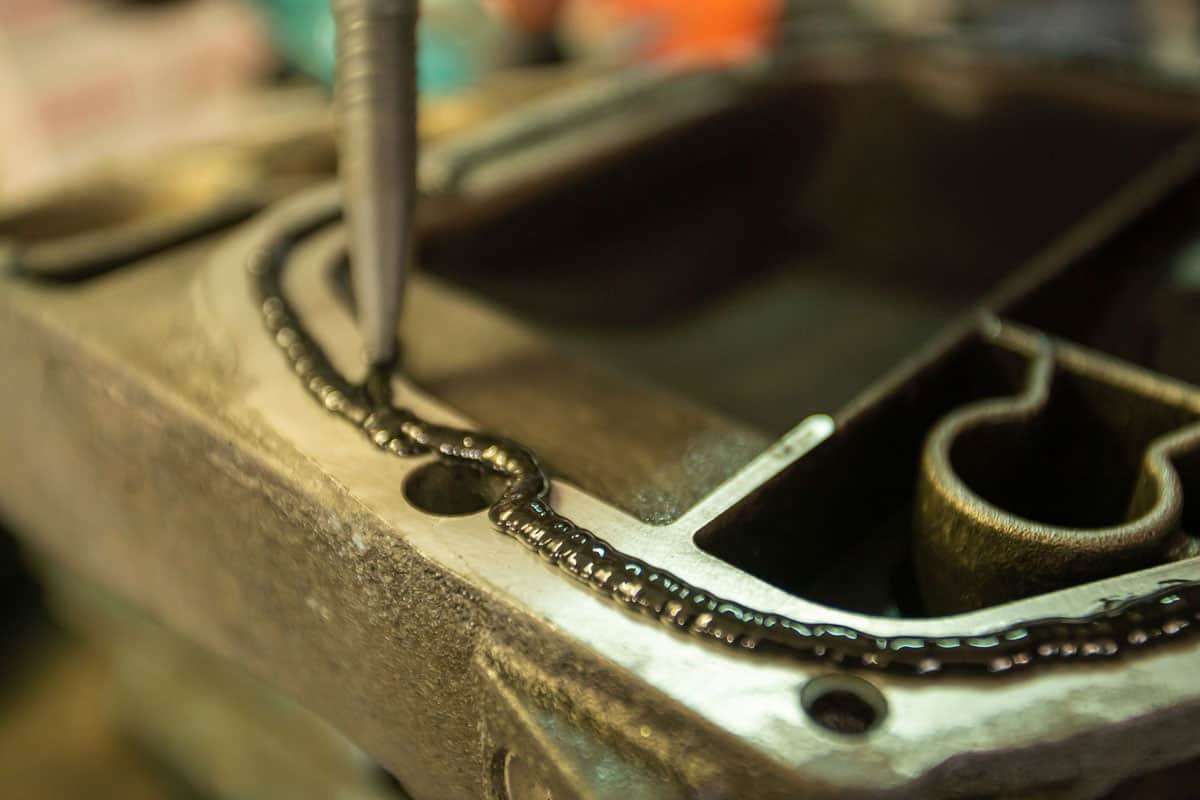
Vaseline can be used as a gasket in situations where the damage is minor. However, do not consider this option if there's a major crack because the vaseline wouldn't work in this case.
If you use vaseline as a gasket, ensure you do so in a dry, well-ventilated area. The trick is to apply the vaseline to the visible parts of the gasket, which will provide a nice seal.
Next, let it dry. After that, gently tap it into place and check for air bubbles.
Which Side of The Exhaust Gasket Goes Up?
Depending on the brand, some exhaust gaskets are similar on both sides, while others have directional markings for easy recognition. Not all exhaust gaskets require a specific side to face down or to be up.
You will know which side of the exhaust gasket should face down or face up during installation. Note that an unaligned exhaust gasket will cause sticking, crushing, and leaking if the sides are not in alignment after installation.
Conclusion
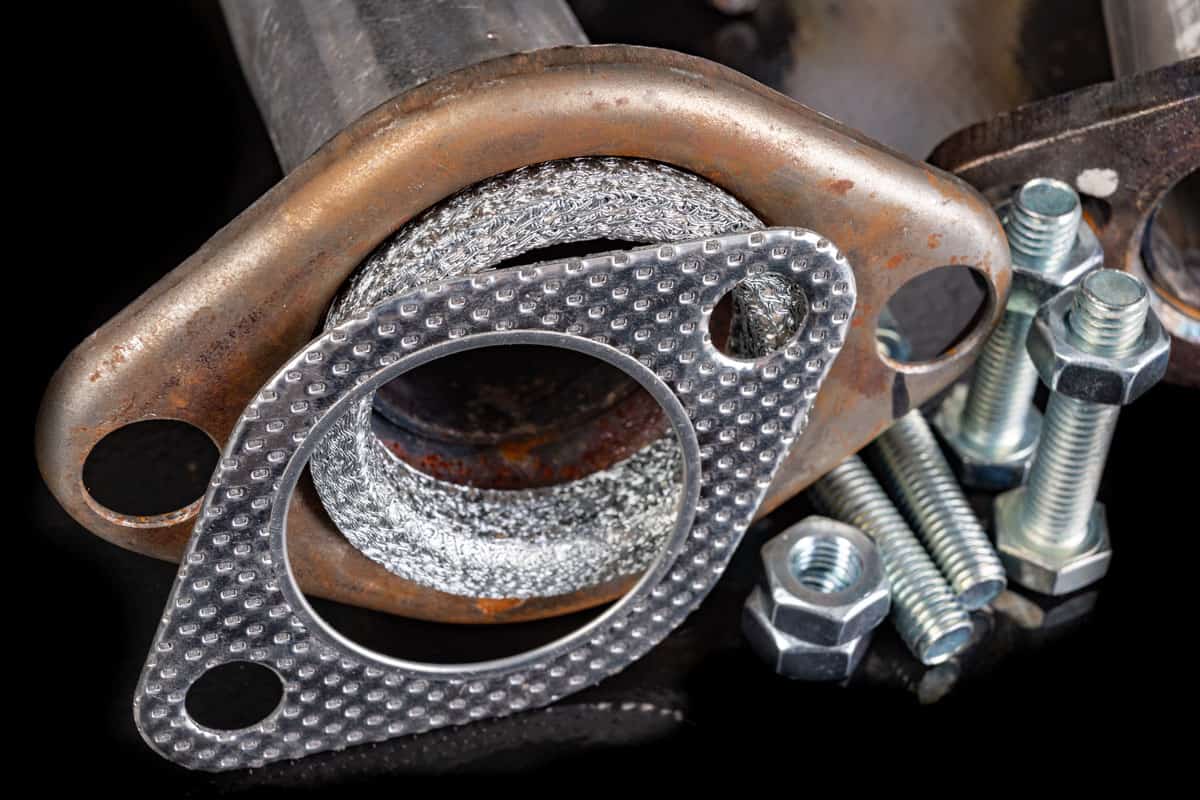
It is best you buy a new exhaust gasket every time you change the exhaust system on your car. It is possible to reuse an old exhaust gasket, but bear in mind that old exhaust gaskets don't perform the same way as new ones and can swell, crack, and leak. Thanks for reading.
If you would like to learn more about exhaust gaskets, check out these engaging articles:

